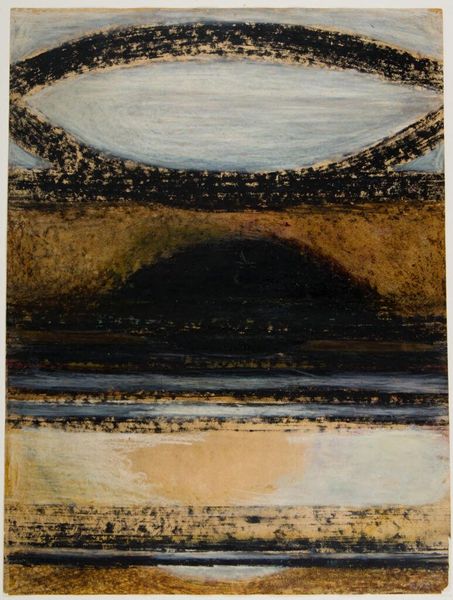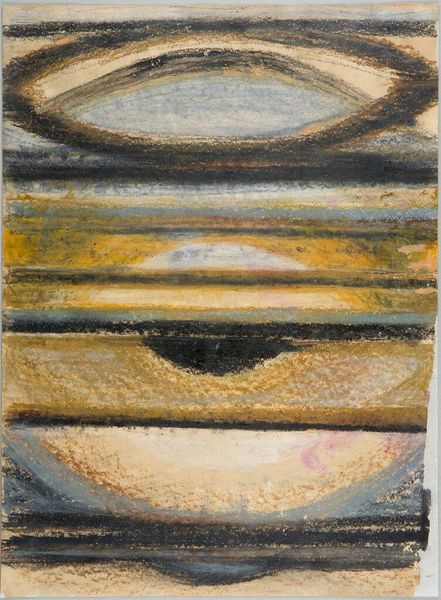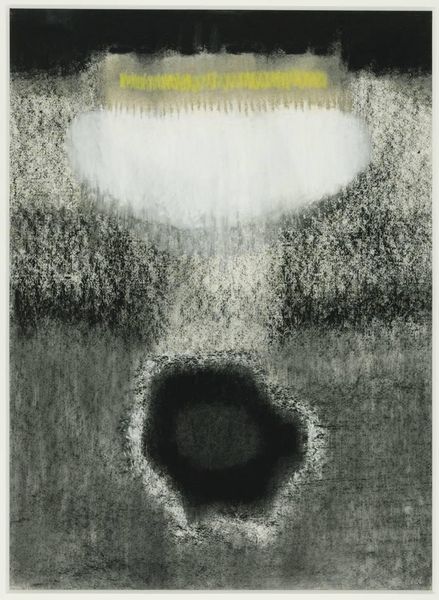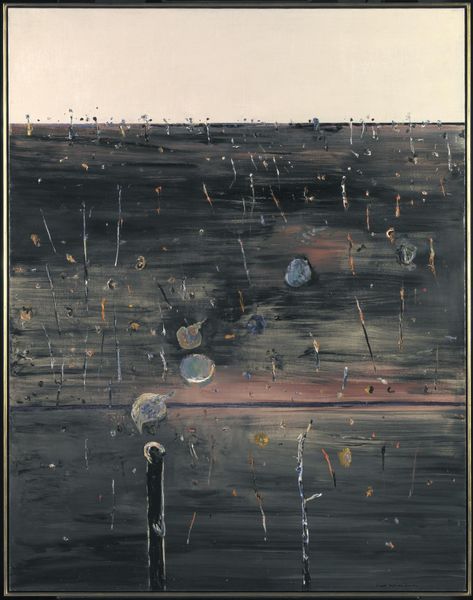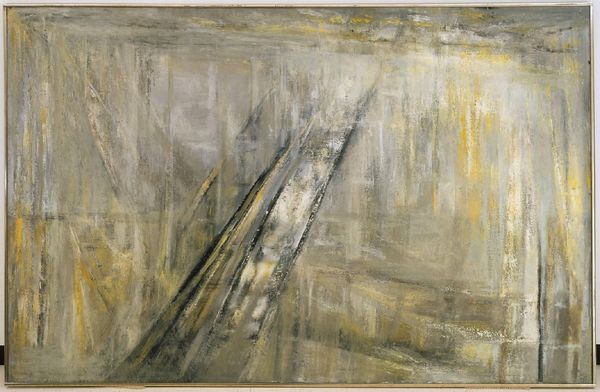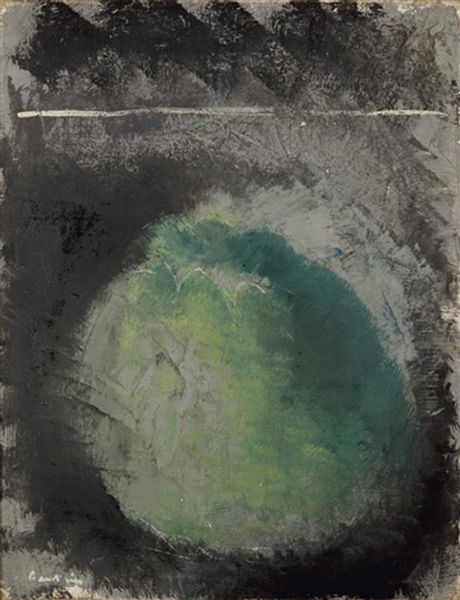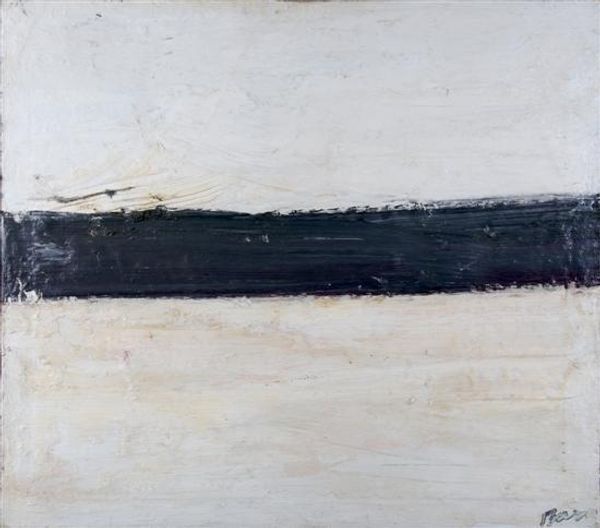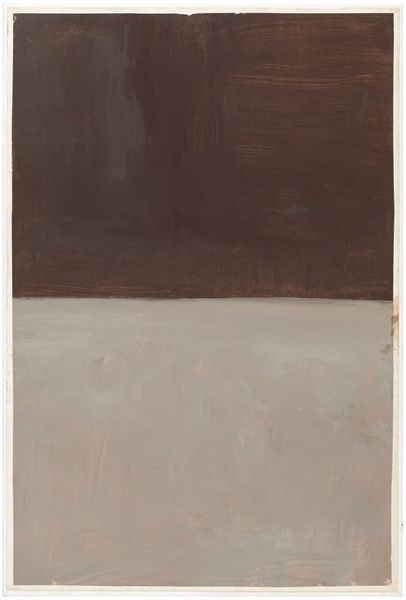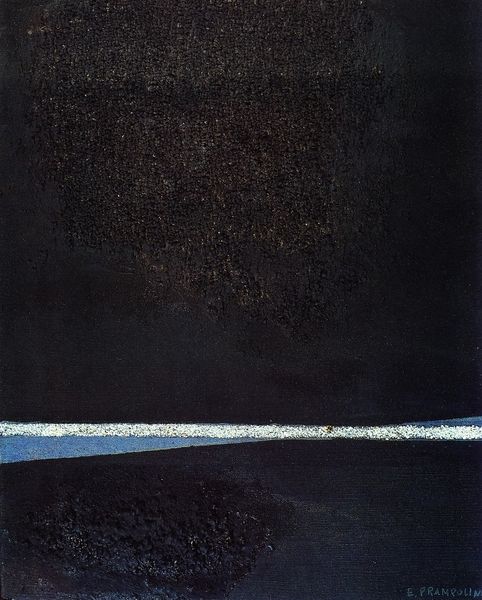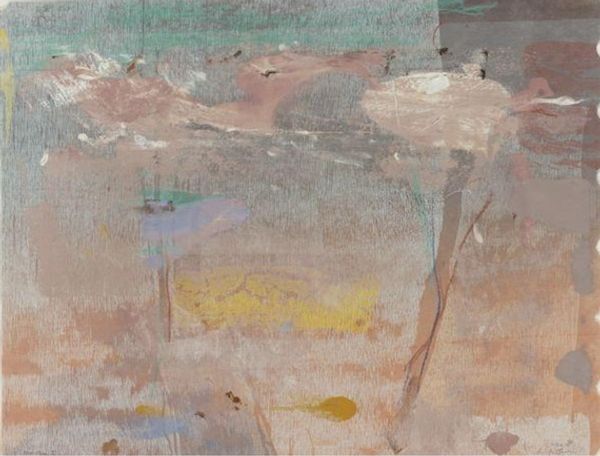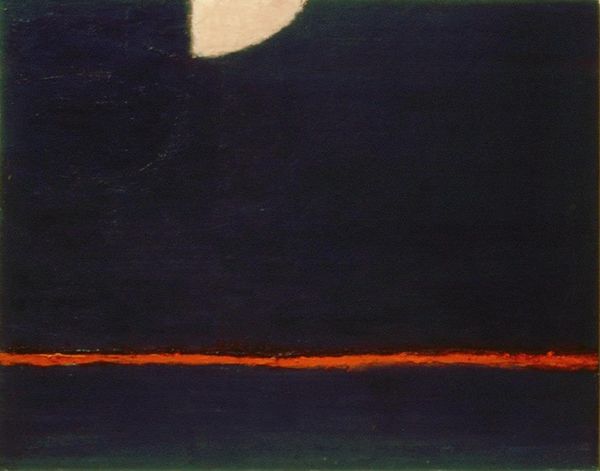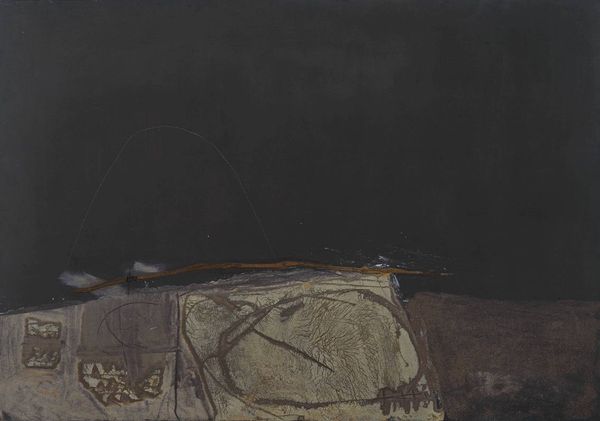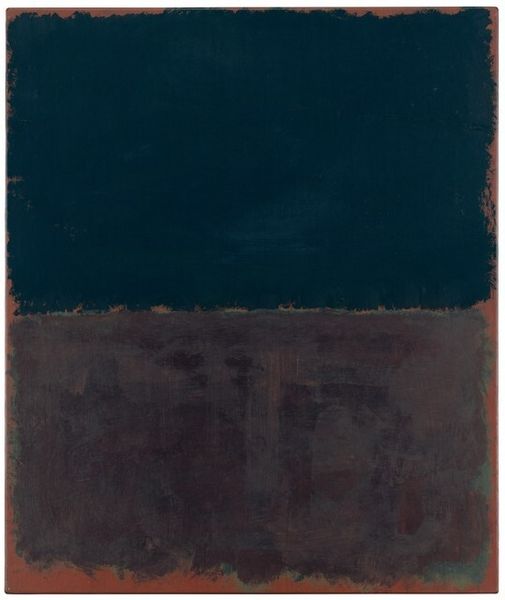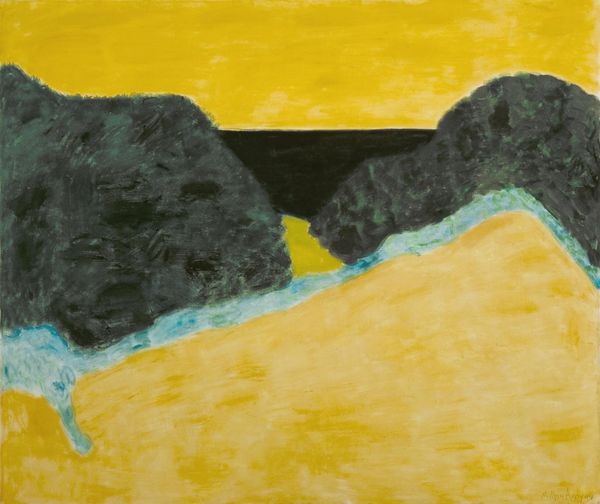
mixed-media, oil-paint
#
abstract-expressionism
#
abstract expressionism
#
mixed-media
#
abstract painting
#
oil-paint
#
landscape
#
oil painting
#
abstraction
Copyright: Hedda Sterne,Fair Use
Editor: Here we have Hedda Sterne's "Untitled" from 1960, created with mixed media including oil paint. The muted colors and horizontal bands create a landscape-like abstraction, but there's a melancholic feel to it. What do you see in this piece? Curator: What I see is a potent example of Abstract Expressionism's grappling with postwar existentialism, but inflected with Sterne’s unique experience as a Romanian Jewish woman navigating the male-dominated New York art scene. Look at the heavy, gestural strokes—they evoke both the vastness of nature and the weight of historical trauma. How might her personal history shape your interpretation of this seemingly abstract landscape? Editor: That’s interesting! I hadn’t considered her personal experiences. The darkness definitely feels more loaded now. But the landscape also makes me think about the universality of the human experience in nature. Is that a fair reading, or am I missing the more pointed critiques? Curator: Not at all. Abstract Expressionism sought the universal, but that was itself a highly gendered and racialized concept. Consider the performative masculinity of a Pollock. Sterne offers a quieter, more introspective engagement. Her use of muted tones perhaps reflects a deliberate undercutting of that masculine bravado. Editor: So, while she’s participating in a major movement, she's also subtly critiquing it from within? That adds so much depth! Curator: Exactly. By looking at the work through the lens of gender and biography, we gain a richer understanding not only of Sterne, but of Abstract Expressionism itself. It invites us to question who gets to define "universal" experiences and what voices are often excluded. Editor: This has really broadened my perspective on abstract art. It's not just about form and color, but about the artist's place in a specific social and political context. Curator: Indeed. And that context shapes not only the creation of the work, but also its reception and ongoing relevance.
Comments
No comments
Be the first to comment and join the conversation on the ultimate creative platform.
